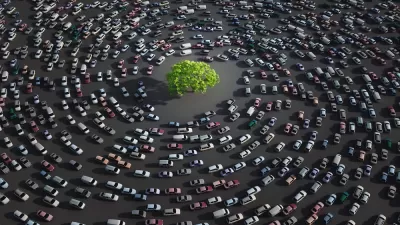The synopsis of the IPCC's fifth major climate assessment was released today in Stockholm. With near absolute certainty, the panel identified humans as the cause of the dangerously warming planet. Could the report propel languishing negotiations?
"Unveiling the latest United Nations assessment of climate science, the experts cited a litany of changes that are already under way, warned that they are likely to accelerate and expressed virtual certainty that human activity is the main cause," reports Justin Gillis.
“'Climate change is the greatest challenge of our time,' said Thomas F. Stocker, co-chairman of the Intergovernmental Panel on Climate Change, the United Nations-sponsored group of scientists that produced the report [PDF]. 'In short, it threatens our planet, our only home.'”
With a look at rising atmospheric carbon levels, land and ocean temperatures, and sea levels, the synopsis presents a litany of evidence of a changing planet. And for the first time, the world’s top climate scientists set "a 'carbon budget' for humanity — a limit on the amount of the primary greenhouse gas, carbon dioxide, that can be produced by industrial activities and the clearing of forests."
"To stand the best chance of keeping the planetary warming below an internationally agreed target of 3.6 degrees Fahrenheit (2 degrees Celsius) above the level of preindustrial times, the panel found, no more than one trillion metric tons of carbon can be burned and the resulting gas released into the atmosphere," says Gillis.
"Just over half that amount has already been emitted since the beginning of the Industrial Revolution, and at the rate energy consumption is growing, the trillionth ton will be released somewhere around 2040, according to calculations by Myles R. Allen, a scientist at the University of Oxford and one of the authors of the new report. More than three trillion tons of carbon are still left in the ground as fossil fuels."
FULL STORY: U.N. Climate Panel Endorses Ceiling on Global Emissions

Alabama: Trump Terminates Settlements for Black Communities Harmed By Raw Sewage
Trump deemed the landmark civil rights agreement “illegal DEI and environmental justice policy.”

Planetizen Federal Action Tracker
A weekly monitor of how Trump’s orders and actions are impacting planners and planning in America.

The 120 Year Old Tiny Home Villages That Sheltered San Francisco’s Earthquake Refugees
More than a century ago, San Francisco mobilized to house thousands of residents displaced by the 1906 earthquake. Could their strategy offer a model for the present?

San Francisco Opens Park on Former Great Highway
The Sunset Dunes park’s grand opening attracted both fans and detractors.

Oregon Legislature to Consider Transit Funding Laws
One proposal would increase the state’s payroll tax by .08% to fund transit agencies and expand service.

Housing Vouchers as a Key Piece of Houston’s Housing Strategy
The Houston Housing Authority supports 19,000 households through the housing voucher program.
Urban Design for Planners 1: Software Tools
This six-course series explores essential urban design concepts using open source software and equips planners with the tools they need to participate fully in the urban design process.
Planning for Universal Design
Learn the tools for implementing Universal Design in planning regulations.
Clanton & Associates, Inc.
Jessamine County Fiscal Court
Institute for Housing and Urban Development Studies (IHS)
City of Grandview
Harvard GSD Executive Education
Toledo-Lucas County Plan Commissions
Salt Lake City
NYU Wagner Graduate School of Public Service




























